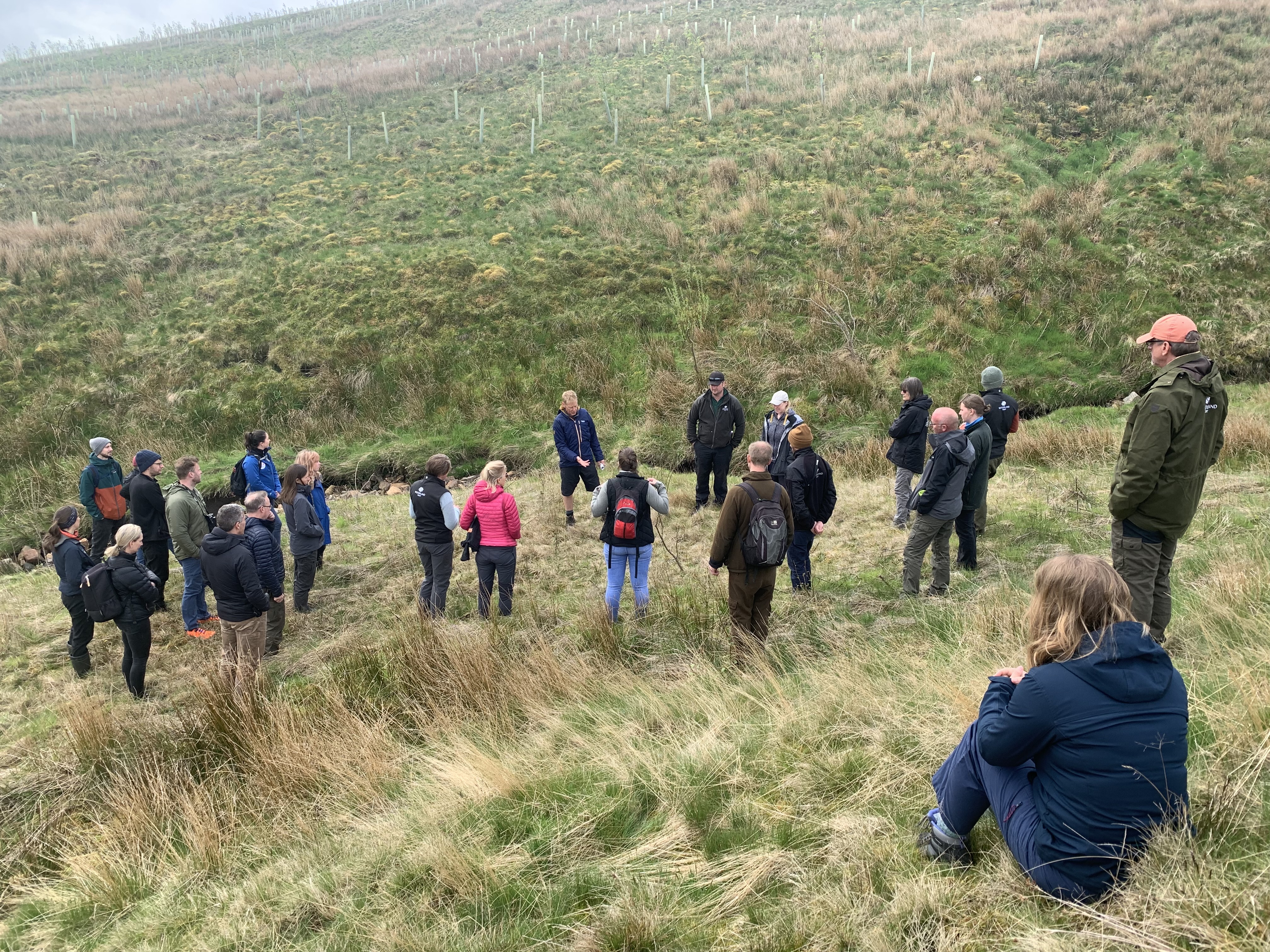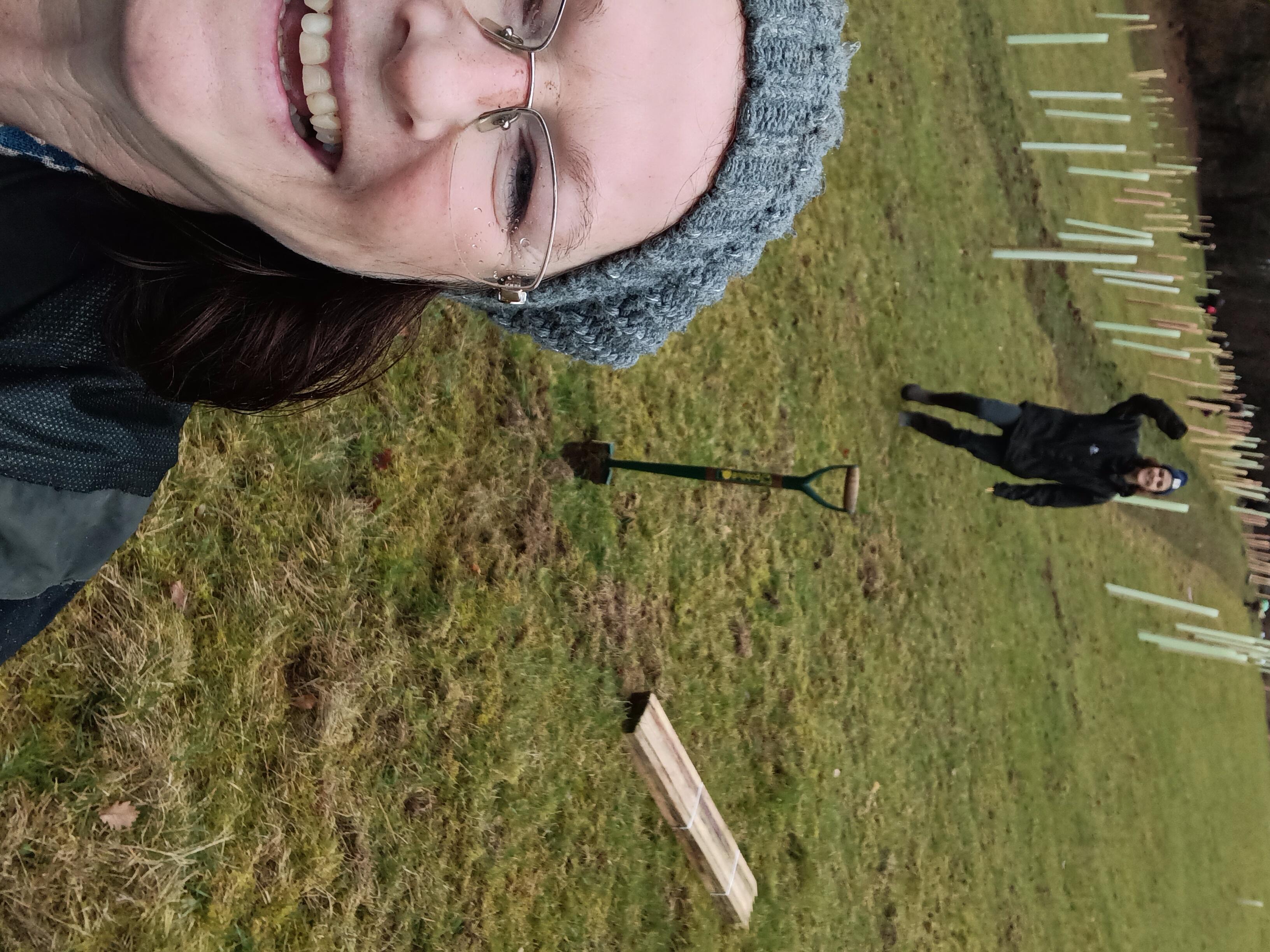
Vanessa Burton, Conservation adviser, The Woodland Trust (and ialeUK treasurer)
Tell us about a typical day in your work life
I’m part of the Conservation Outcomes team in the Woodland Trust. Our role is to be a bridge between research & evidence and conservation practice & policy, and we have a UK-wide remit providing advice, guidance & training, so the work is super varied.
I’m home-based and do spend a lot of time tucked away with my laptop and dog to keep me company as I navigate Teams calls. This can be on anything from supporting projects on landscape scale restoration in Assynt or seed sourcing from sites across England, to setting up monitoring experiments on our sites, to getting stuck into research for the next State of Woods & Trees report.
I do get to travel a lot, across the whole of the UK. Over the last year we’ve been delivering woodland creation site assessment and design training events which have seen us in Belfast, mid-Wales, the Scottish Borders, Norfolk, and Cumbria. We’ve covered a wide range of topics including habitat ID, historic environment, soil assessment, and landscape design.
What (or who) got you involved in landscape ecology?
In 2013 I did a masters in Environmental Sustainability at Edinburgh University, and simultaneously was inspired after reading about Trees for Life in the book Feral to learn more about rewilding and positive environmentalism. Everything I was learning about landscape scale conservation, equality, and community participation seemed to be perfectly encapsulated by landscape ecology. My course director (and later PhD supervisor) Marc was involved with ialeUK, and he encouraged me to become PGR rep for the committee. I didn’t need much convincing – after attending one or two ialeUK events already, I knew it was a friendly, welcoming & very knowledgeable community. It’s one I feel privileged to still be a part of.
What is your favourite UK landscape?
The Speyside area of the Cairngorms. There’s such a fantastic amount of exciting landscape scale woodland regeneration work going on there, and a Caledonian pine/birch woodland is my happy place. And I’ll always have a soft spot for the Cotswolds where I grew up.
What do you most enjoy about your work?
My best days are when I get to go and meet one or two of our site managers, or outreach advisers on site. Second to having time to think and write, I find this is how I communicate best, and I always learn a huge amount – plus I get to stomp around a wood (or soon to be wood) which is already a pretty good way to spend a day.
What advice would you give to anyone considering a career in landscape ecology?
I think it’s taken a while for me to reconcile myself with being a ‘generalist’ – especially when traditional academic settings encourage specialism. But I think this is one of the huge benefits of defining yourself as a landscape ecologist – it encourages you to be interdisciplinary and look for connections between topics and perhaps come up with new ways of doing things. We need this given the nature, climate, and social crises we’re facing.
I wouldn’t be where I am today without my network – and I’m not talking about awkward chats after events kind of networking, but rather the connections (and friendships) I’ve developed with people that I’ve worked for and with since I did my masters. As my career has developed, it’s been about offering my enthusiasm (early on) and skills and knowledge (as time has gone on), really valuing the supportive people around me, and occasionally doing things that push me out of my comfort zone and taking the odd big old leap. Generally, work can always be tough sometimes, but I think a career in landscape ecology is an incredibly gratifying one. So, offer your skills, make meaningful connections, and be proud of having a different perspective as a landscape ecologist.
@vee_burton (Twitter/X)

